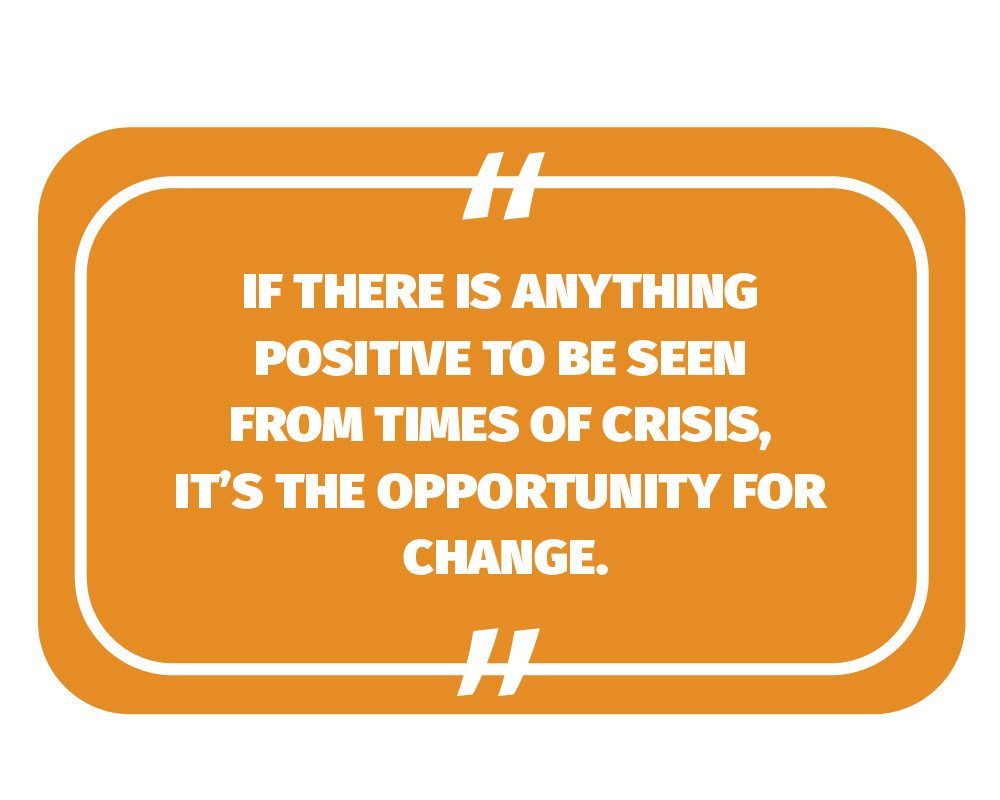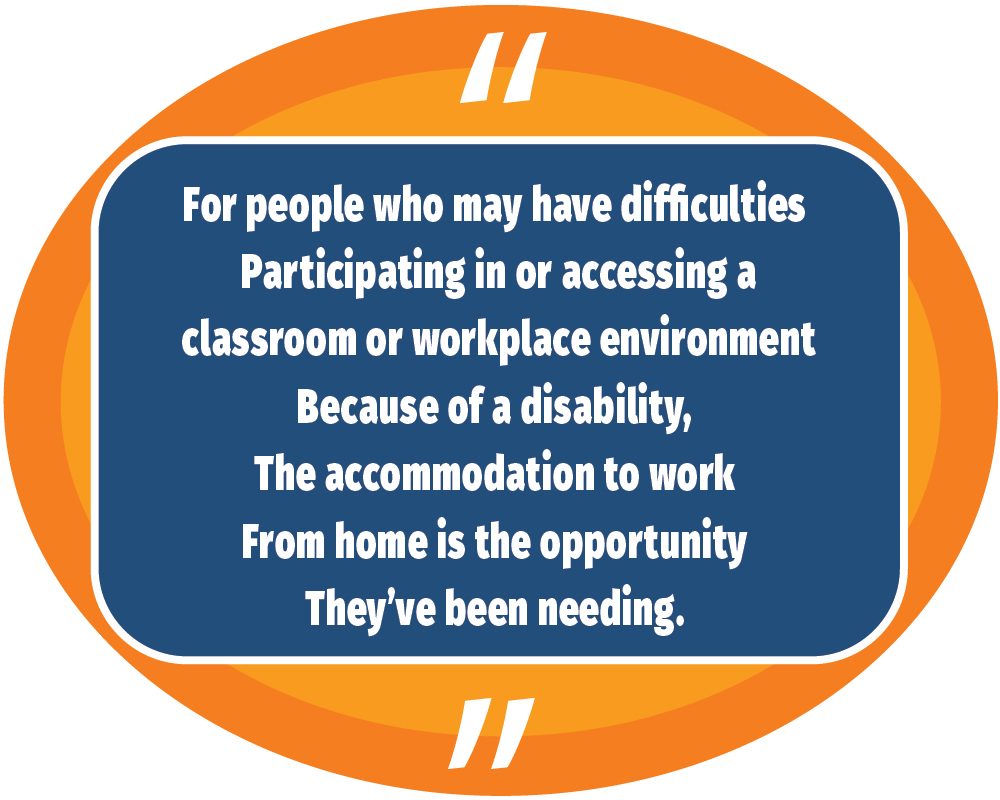Good news stories from last year that you may have missed
One of our editors recently came across a Foreign Policy news article listing things that happened in 2020 that we might have missed… and it was almost all horrible. Wars, protests, conflicts — you name it. As if the terrible things that we didn’t miss (see: COVID-19, see: police brutality) weren’t enough. Thanks, Foreign Policy.
Yeah, 2020 was a dumpster fire, and yeah we should all take the time to grieve our lost and changed lives, but no, we don’t think folk need to be reading articles about how horrible 2020 has been. We know. So, here’s a list of all the good news stories from around the world that came out of 2020. Take a break from the chaos that is the beginning of the semester, forget about COVID-19 for a second, and check out some sweet little news nuggets.
#1 Trump is out of office
The nightmare of President Donald J. Trump is finally over. Sure, he went out with a white supremacist bang after his minions stormed the Capitol, but he is out. Moreover, America has been embarrassingly exposed as the corrupt, racist, and downright insane country that it’s always been — a nation infiltrated and built by white supremacy. While Trump set America back in a lot of areas and caused incalculable trauma and harm, his erratic and offensive behaviour during his four years in office could serve as a wake-up call. Whether this wake-up call spurs positive change or more division remains to be seen moving forward.
Moreover, our reaction to Trump’s presidency should move Canadians to analyze our own politics and politicians, and weed out white supremacy and racism where we see it because it’s in our politics and systems, too. We now have an example of what can happen when we let racism and hate speech flow freely through political discourses. Let’s not let it get to that, okay?

#2 All of the social movements
While social movements may seem like scary and sometimes violent acts of anger, they can actually be framed as something positive, as citizens assert their rights and band together to attempt to create a society that serves the people. Social movements have sparked major positive changes in history and can be seen as the growing pains of society.
There is no doubt that people were mad last year. It’s hard to comprehend the fact that not only did Black Lives Matter (BLM) explode in the summer, but the “Shut Down Canada” movement was going global at the beginning of last year as well.
Shut Down Canada is an ongoing solidarity movement that began in support of the Wet’suwet’en opposition to the construction of a pipeline through their traditional territory. It now represents larger opposition to the colonial capitalist exploitation of Indigenous lands and resources.
In October of last year, hundreds of people gathered in Ottawa in support of the Shut Down Canada for Indigenous Rights movement representing multiple issues faced by Indigenous groups across Canada. This included the fight for fishing rights by the Mi’kmaq in Nova Scotia, Algonquin concerns over declining moose populations in Barriere Lake, and the Six Nations battle against land developers in Ontario.
Not only did social movements take off in Canada, the United States experienced waves of BLM protests throughout the summer. BLM protests first escalated in 2014 with the murder of Eric Garner by police, with multiple protests erupting since then. In 2020, they were sparked by the shooting death of Breonna Taylor by police who wrongfully invaded her home, and again when George Floyd became yet another Black man to be choked to death by police during an arrest. People took to the streets all summer, protesting racism and police brutality in America.
Those are just North American protests. In Hong Kong, pro-democracy demonstrations have been ongoing since 2019 as Hong Kong fights for its independence from China, on top of a number of other political concerns. Nearer to the end of 2020 we saw the Indian farmers protests leak into B.C. The movement is a push back from farmers after the Indian government ended the Minimum Support Pricing (MSP), a social security measure for farmers, and issued a number of changes that the farmers claim jeopardizes their livelihoods and puts them in a weakened negotiating position against corporate giants. Khalsa Aid Canada, an international non-governmental organization (NGO) that supports victims of disasters, claims it is the largest protest in human history.
Social movements and protests are stressful events. Ideally, we would live in a society without the need for protests, but as long as they are necessary, they can instead be seen as markers of communities’ strength and resilience. If there is anything positive to be seen from times of crisis, it’s the opportunity for change.
#3 Scotland made period products free
Finally. Scotland is the first country in the world to make period products free after Members of the Scottish Parliament (MSPs) unanimously voted to pass the Period Products (Free Provision) (Scotland) Bill in November. Labor MSP Monica Lennon, who has been campaigning to end period poverty since 2016, introduced the bill, stating that “Periods don’t stop for pandemics and the work to improve access to essential tampons, pads, and reusables has never been more important.”
The bill aims to combat period poverty and period stigma, as research shows that 10 per cent of girls in the U.K. have been unable to afford period products, while another 15 per cent have struggled to afford them. As well, a whopping 71 per cent of girls (aged 14-21) felt embarrassed buying menstrual products in the first place.
Period products in Scotland must now be distributed to “anyone who needs them” and will be “reasonably” easy to obtain, according to the bill. Methods of distribution will soon be decided by the country’s 32 regional councils.
#4 Record-breaking number of women and LGBTQ+ candidates were elected into U.S. Congress
Our southern neighbours elected a record-breaking number of BIPOC and LGBTQ+ folk into Congress. This includes six Indigenous candidates — the most Indigenous lawmakers that have served the United States at once, ever. America also saw the election of its first openly trans state senator, Sarah McBride. Five Democrats, Mauree Turner (who is Black and queer), Madinah Wilson-Anton, Christopher Benjamin, Samba Baldeh, and Iman Jodeh, will serve as the first Muslim lawmakers in their respective states.
After four years of Trump, it’s clear that American voters might just be looking for something a little different.

#5 Mi’kmaq bought Clearwater
In November, 50 per cent of Clearwater, one of North America’s largest seafood companies, was purchased by the Mi’kmaq First Nation in Nova Scotia.
The deal came after conflict between Mi’kmaq and non-Mi’kmaq lobster fishermen erupted in the early fall, sparked when the Sipekne’katik First Nation opened up a self-regulated fishery in St. Mary’s Bay outside of the colonially regulated fishing season.
According to the Peace and Friendship Treaties signed by Mi’kmaq in the 1700s and ratified in the constitution under Section 35, the Mi’kmaq have a right to fish for a moderate livelihood and to fish for ceremonial purposes. Unfortunately, the non-Mi’kmaq lobster fisherman saw this as a threat to lobster stocks and decided to violently take matters into their own hands.
The partial acquisition of Clearwater by the Indigenous group will undoubtedly financially benefit the Mi’kmaq community, and will mean that there are more Indigenous voices in the commercial fishing industry — which is a step toward reconciliation in Canada.
Membertou First Nations Chief Terry Paul commented on the transaction, stating that “Acquiring Clearwater will have lasting positive impacts on the economics of our Mi’kmaq communities,” and that “This is a generational acquisition that would be felt across our communities for the next seven generations.”
#6 COVID-19 gave scientist an opportunity to study the atmosphere
With the travel restrictions and orders to stay home in place due to COVID-19, we’ve seen a global decrease in air pollution.
In China, air pollution dropped significantly, and researchers have taken this opportunity to study the atmosphere in ways they would not have been able to do before. In particular, they want to analyze and better understand the mechanisms that control atmospheric chemistry, and hopefully be able to effectively address issues such as poor air quality and climate change.
Nga Lee “Sally” Ng from the Georgia Institute of Technology told Chemical & Engineering News: “It’s a weird opportunity. Everything is so awful, but then you get to do this experiment you have been dreaming of doing.”
When restrictions are lifted, it’s hard to tell if the reduction in emissions will stick around, but for now it gives researchers an opportunity to gather data that otherwise would have been inaccessible or only obtainable in simulated lab experiments. Additionally, the proof that a decrease in vehicular travel does result in a decrease in air pollution provides evidence of the human impact on global air pollution levels — take that, climate change deniers.
#7 Working from home has provided people with disabilities the opportunities they’ve been asking for
For years, people living with disabilities who have faced challenges when trying to access workplaces and classrooms have been denied the accommodations they need to work from home. Then along came COVID-19.
With the sudden shift to at-home, online work, workplaces and schools have had to quickly accommodate and adjust how they operate. For people who may have difficulties participating in or accessing a classroom or workplace environment because of a disability, the accommodation to work from home is the opportunity they’ve been needing.
While those without access to technology or who only have access to essential or frontline work are not benefitting, virtual living has proven that accommodations for disabled people are possible, which is a huge step forward for many who are living with a disability.
#8 Wales is building a huge forest
Wales is dropping $5.9 million (USD) on a forest that is going to run through the entire country. What’s better news than a huge forest? The government-funded project has the goal of sequestering carbon, preserving nature, and improving biodiversity. The Welsh government called it a “connected ecological network of woodland.” Epic.
So, there you have it: a handful of positives on this chaotic mess of a planet we call Earth. Take it or leave it, no shame. And there’s no shame if these things don’t make you feel joyous or optimistic right now. COVID-19 has posed society some serious challenges, and you are allowed to feel pessimistic. Just don’t let yourself get too bogged down; society needs you! For now, this is your little reminder that the world isn’t completely going to crap.
(Celina Koops/The Cascade)
Darien Johnsen is a UFV alumni who obtained her Bachelor of Arts degree with double extended minors in Global Development Studies and Sociology in 2020. She started writing for The Cascade in 2018, taking on the role of features editor shortly after. She’s passionate about justice, sustainable development, and education.

